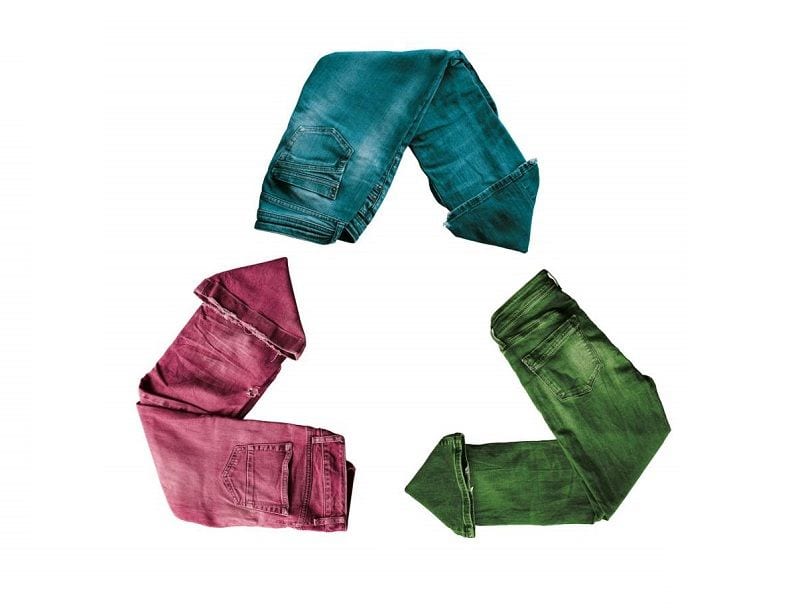Find Cape Town Sustainable Fashion Boutiques and Brands
Remain Ahead of the Curve by Checking Out Ingenious Fashion Patterns
In a market as dynamic as fashion, staying ahead involves even more than simply adhering to existing fads-- it requires an expedition of technology. Smart fabrics, for example, are transforming garments into functional masterpieces, while 3D printing is transforming design procedures with its adjustable, waste-reducing capabilities. As sustainability comes to be a keystone, innovations like green products and circular style methods are reshaping ecological duty - Cape Town Sustainable Fashion. In addition, the merging of innovation and fashion heralds a brand-new age of consumer engagement. Just how, after that, can these arising patterns redefine the future of fashion, and what effects do they hold for brands looking for to flourish in this advancing landscape?

Welcoming Smart Textiles
In the last few years, the fashion business has experienced a transformative change with the assimilation of smart textiles, an innovative innovation that blends innovation with material. This advancement stands for not only a blend of aesthetic appeals and capability but likewise a considerable leap in the direction of sustainability and customization in vogue. Smart fabrics, additionally known as e-textiles, embed sophisticated electronics such as sensors and conductive threads within the fabric, allowing garments to communicate with the atmosphere or the wearer.
These textiles are made to keep an eye on physiological parameters, such as heart rate or body temperature, providing real-time health and wellness analytics. Beyond health applications, smart fabrics are also being used for adaptive clothing, which can transform shade or pattern in action to environmental stimulations, hence providing a dynamic fashion experience.
Moreover, the advancement of energy-harvesting fabrics that produce power from movement or sunshine is leading the way for self-dependent wearable technology. This development is attracting environmentally aware customers and designers aiming to decrease the ecological impact of style. As study and advancement in this area advancement, smart textiles are anticipated to end up being increasingly common, reshaping the landscape of contemporary fashion with their multifunctional capabilities.
The Rise of 3D Printing
Transforming the manufacturing landscape, 3D printing has arised as a game-changer in the apparel industry. This advanced modern technology has actually allowed developers to press the borders of creativity, producing complex and tailored garments that were formerly unbelievable. By leveraging digital layout and additive production, 3D printing helps with the development of intricate geometries and patterns, allowing designers to try out brand-new appearances and frameworks.
A noteworthy advantage of 3D printing in vogue is its ability to generate on-demand, decreasing waste and minimizing supply requirements. This performance not just optimizes manufacturing processes but likewise enables rapid prototyping, allowing developers to bring their visions to life in a much shorter timeframe. Additionally, 3D printing sustains personalization somewhat unparalleled by conventional approaches, supplying distinct styles and individualized fits customized to individual consumer preferences.
The rise of 3D printing has likewise democratized fashion, making it easily accessible to arising designers who can now produce top notch pieces without considerable economic investment in traditional manufacturing infrastructure. As innovation proceeds to breakthrough, the fashion business is positioned to harness the complete potential of 3D printing, exploring new materials and techniques that will unquestionably redefine exactly how fashion is developed and generated.
Lasting Fashion Technologies
As the garment industry faces journalism need for environmental obligation, lasting style developments have actually emerged at the forefront of transformative modification. The expanding understanding of environmental impact has actually sustained a shift towards more eco-conscious techniques and products. Brand names and designers are now focusing on sustainability, incorporating approaches additional resources that decrease waste and lower carbon impacts.
One significant growth is the rise of round fashion, which stresses recycling and upcycling to prolong the lifecycle of garments. This strategy not just minimizes waste however also encourages consumers to embrace an extra mindful strategy to garments intake.
One more innovation depends on the adoption of ingenious dyeing techniques that use waterless processes or all-natural dyes, thereby lowering the vast amounts of water and chemicals commonly made use of in fabric dyeing. Moreover, advancements in biotechnology have caused the production of lab-grown leather and textiles, providing ecologically pleasant and cruelty-free options to conventional materials. Through these pioneering efforts, the garment industry is making meaningful strides towards a much more sustainable future.

Tech-Integrated Clothing
Tech-integrated apparel represents an innovative fusion of style and modern technology, improving exactly how people communicate with their clothing. This ingenious domain is marked by the incorporation of smart fabrics and embedded digital parts, improving both functionality and visual charm. From physical fitness trackers installed in sports apparel to heated coats managed using smart device apps, tech-integrated apparel uses customers extraordinary ease and versatility.
Introducing brand names are driving this fad, concentrating on creating garments that respond to ecological stimulations or customer commands. As an example, some garments can alter color or pattern in feedback to temperature changes, while others integrate biometric sensors to keep track of health and wellness metrics like heart rate or stress levels. The smooth integration of technology right into fabrics likewise encompasses environmental sustainability, with initiatives to create self-cleaning materials or garments that get used to weather conditions, hence lessening the demand for several layers.
Furthermore, the development of wearable modern technology is not simply restricted to apparel yet reaches accessories like watches and eyewear, more expanding the scope of tech-integrated style. As the market remains to introduce, the potential for personalization and personalization in garments expands, offering customers special, tech-enhanced style experiences that accommodate their specific requirements and preferences.
Future of Virtual Style
Over the last few years, the future of digital fashion has become a transformative force within the sector, leveraging improvements in digital modern technology to redefine exactly how fashion is produced, experienced, and consumed. By incorporating augmented fact (AR), virtual truth (VR), review and 3D style devices, designers can currently craft immersive and interactive experiences that go beyond standard style boundaries. Digital fashion permits for the development of garments that exist only in digital settings, offering countless possibilities for technology without the restrictions of physical manufacturing.
This digital change not only provides possibilities for creative expression but likewise addresses sustainability issues intrinsic in standard style methods. Cape Town Sustainable Fashion. By removing the requirement for physical sources, virtual fashion minimizes waste and minimizes carbon footprints. Moreover, the surge of digital fashion aligns with the raising consumer demand for distinct and tailored experiences, as online garments can be personalized and customized to private preferences effortlessly

Verdict
The style industry's future hinge on the combination of sustainable practices and ingenious innovations - Cape Town Sustainable Fashion. Smart fabrics and tech-integrated clothing are boosting performance, while 3D printing offers chances for customization and waste reduction. Lasting fashion, via green materials and circular approaches, demonstrates a dedication to environmental stewardship. Moreover, virtual fashion is positioned to redefine consumer communications. Adjusting to these trends is essential for brands looking for to stay affordable and relevant in this rapidly progressing landscape.
In recent years, the style industry has seen a transformative change with the assimilation of clever textiles, an innovative technology that mixes modern technology with material.As the style industry grapples with the pressing requirement for environmental obligation, lasting style innovations have arised at the forefront of transformative change.In recent years, the future of virtual fashion has actually arised as a transformative pressure within the sector, leveraging innovations in check this digital innovation to redefine just how fashion is developed, experienced, and consumed. The increase of virtual fashion aligns with the enhancing consumer demand for distinct and customized experiences, as online garments can be customized and tailored to specific choices with convenience.
The style sector's future lies in the combination of ingenious innovations and sustainable practices.